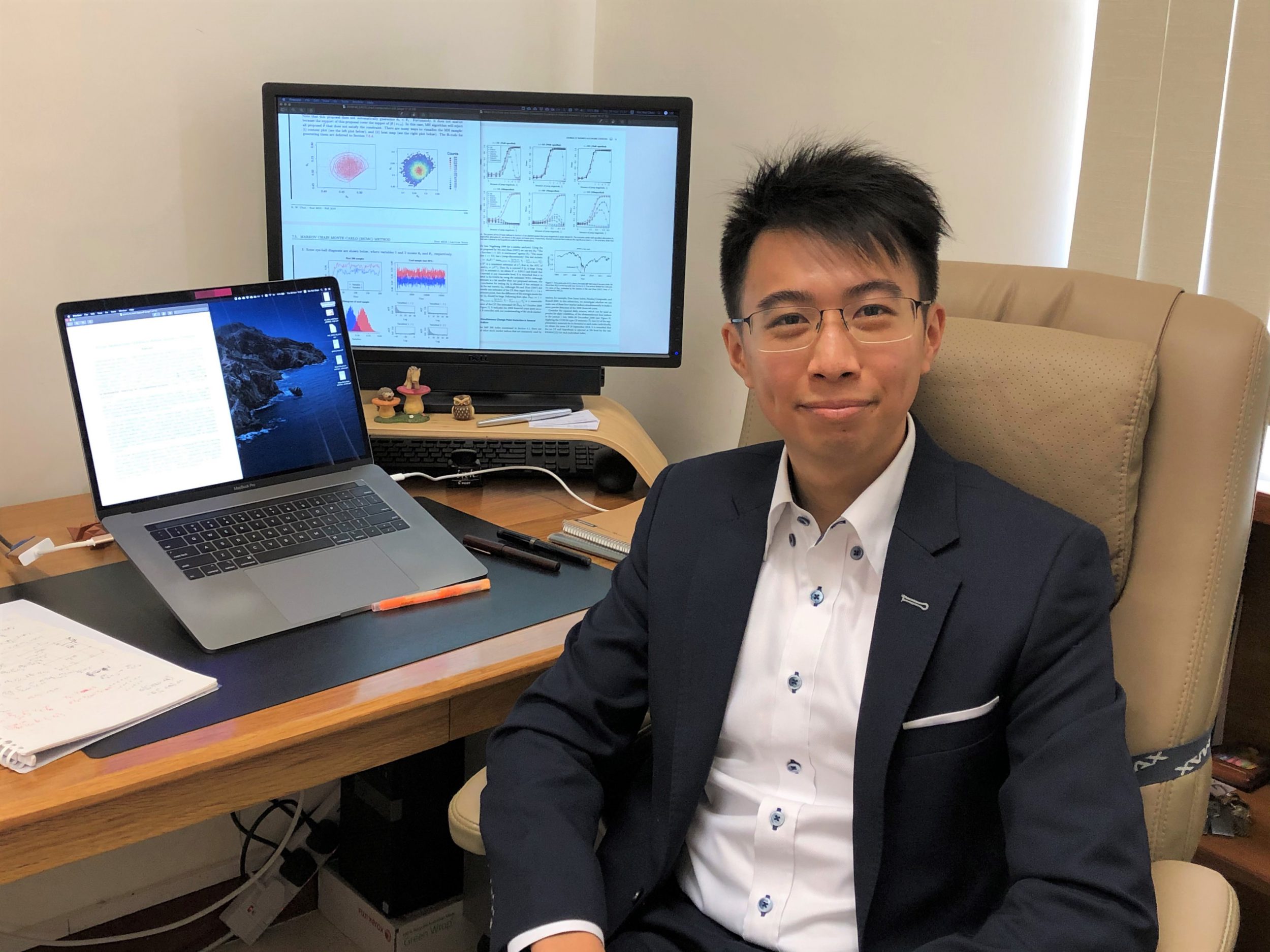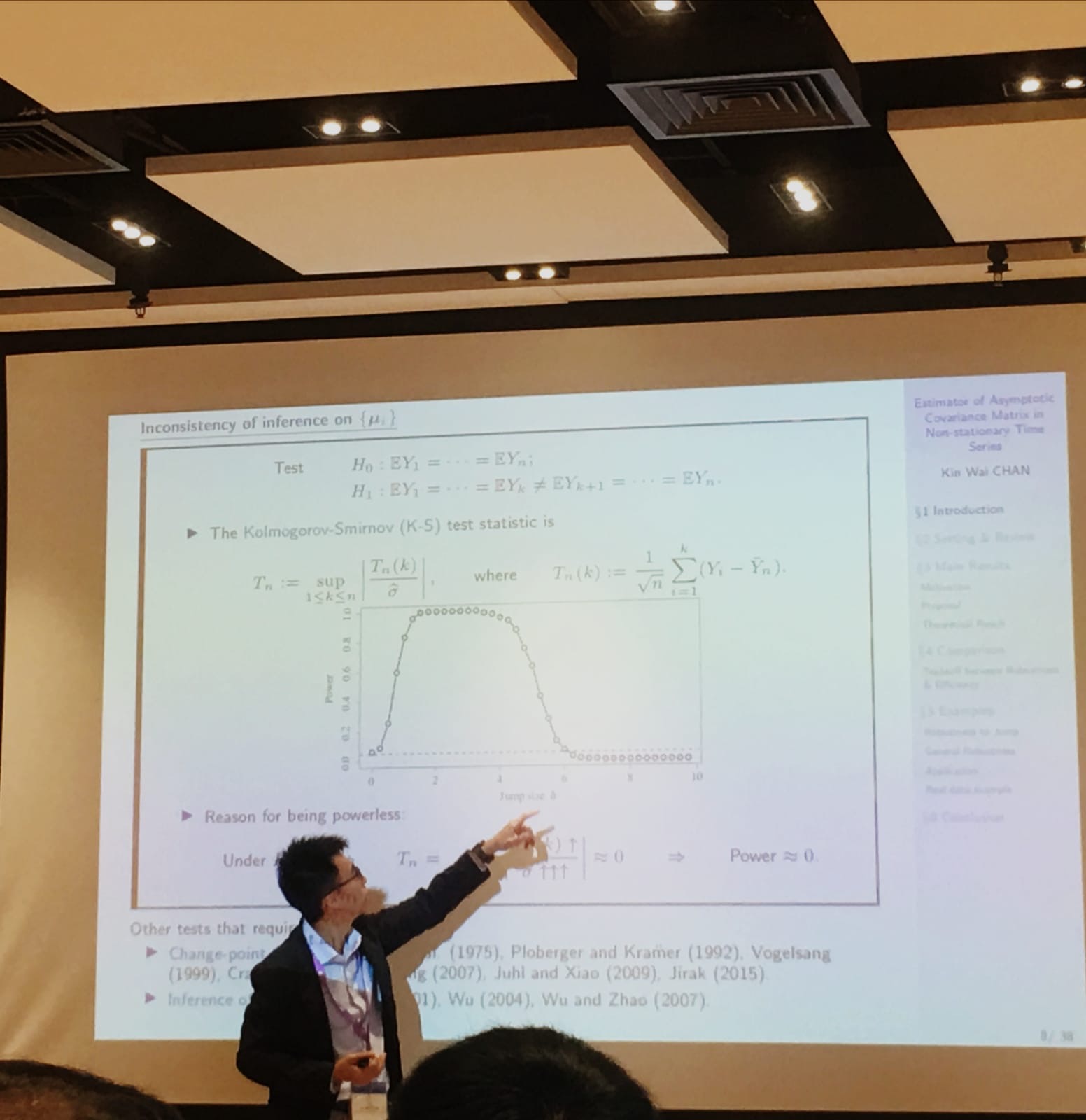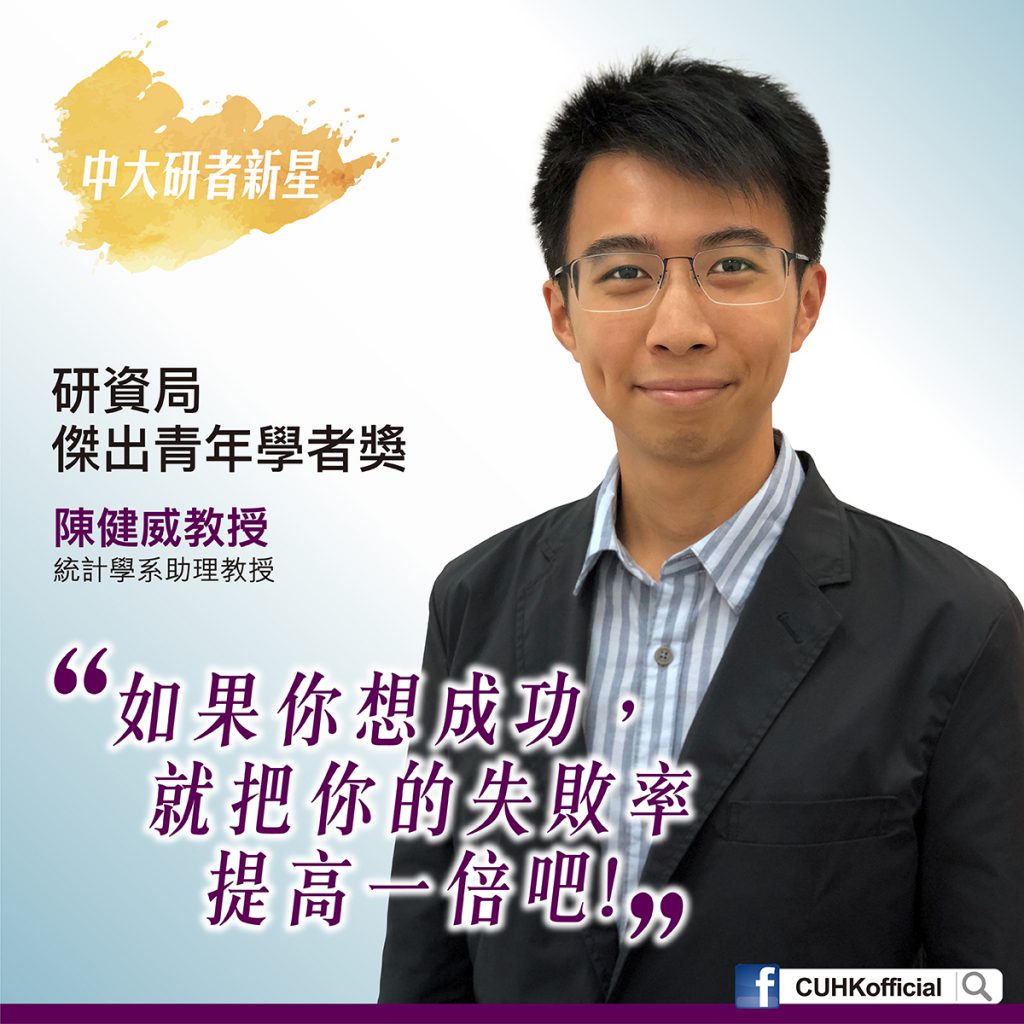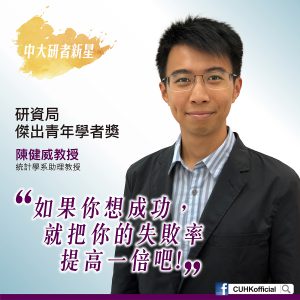Professor Chan Kin Wai looks forward to success after 99 instances of failure
Professor Chan Kin Wai looks forward to success after 99 instances of failure
“I will not be defeated by just one failure. If something takes 99 instances of failure to become successful, not only do I enjoy the 99 failures, but also look forward to the hundredth time of trial, because the joy of success is indescribable.” Professor Chan Kin Wai from the Department of Statistics always has to overcome the bottlenecks in his research journey. “If we succeed in the first attempt, how can it be challenging? How can it bring us joy? If something can be solved easily, then it is simply a question, not an enigma. What fascinates me the most is the enigma derived by the data that no one in the world has found the answer to yet.” With a motivation for self-challenge, Professor Chan’s research on “Multiple incompatibility problems in multiple imputation procedures” has been recognised and awarded with the RGC Early Career Award in 2019 by the University Grants Committee (UGC).
Make the Mathematic Programme step down from the ivory tower
Since a little boy, Professor Chan has been enjoying the process of learning and solving mathematical formulas, theories or equations. He always wonders why all the mathematical formulas cannot directly relate to our daily life. Mathematics is a “forward-looking” subject, including all sorts of equations and theories that often advance the existing technology. The answer on the blackboard is always right, but how to apply it in daily life? There is always a huge gap between theory to application. Therefore, he always thinks about the way to bridge the gap between the abstract mathematical equations and real life, so that we can apply them in our daily lives to solve problems easily. Professor Chan has been searching for a solution all the time, and he found it in the University. Professor Chan studied Risk Management Science in his undergraduate degree. As the programme is organised by the Department of Statistics, he developed more and more understanding in the field of statistics, in the end making his “Bridge-building Dream” come true.

Professor Chan has made his “Bridge-building Dream” comes true when he started studying statistics.
My awarded project
Upon the completion of his undergraduate and master degrees at CUHK, Professor Chan went to Harvard University to pursue his PhD degree in Statistics. Noticing that the issue of missing data is very common, Professor Chan put his research focus on it to search for a solution. “Missing data in general refers to the lack of data in the Excel. It is not stored in the cell for some reason; for example, the absence of selected citizens from the population census or the absence of patients for follow-up consultations. From that moment, all the relevant data could not be recorded. Currently, in the field of statistics, we don’t have an easy solution to solve the problem of incomplete data results.” You can see Professor Chan as a missing data therapist in his award-winning project to solve that problem. “My research project uses the simplest method to tackle the hardest problem in the statistics. Users can make analysis on the missing data via the software I designed and the software can be widely used in anywhere, regardless of the scale.”
In general, without any missing data, users can select one of the functions in the spreadsheet, like “mean”, then select the scope of calculation for the correct answer. How can this software be utilised in the lack of data? Professor Chan smiled and said, “This software is just like a ‘Data for Dummies’, it is very easy to use. Users only have to provide the statistics programme like mean, mode, etc, and input all the incomplete data into the software for calculation. As simply as that, you can have the answer.” In the traditional statistic calculation, a specially designed model is required. The correct analysis on the missing data requires repeated and complicated steps and adjustments.

Professor Chan conducts a zoom discussion with his research students.
The Captivating Statistics
The bridge is built by solving the problem step by step, yet, for Professor Chan, it is not the most captivating part of statistics. For him, the real charm is that statistics is a philosophy of life. It tells us how the world operates. Different statisticians have their own beliefs and attitudes, resulting in different analysis results. The so-called “Data fabrication” in fact is the misleading data obtained by the specially processed statistical model designed by statisticians with inappropriate mind-sets. Relying on the principles set by the statisticians who have to be fully knowledgeable about the data and also the world is what makes statistics captivating for Professor Chan. The true statistics can be generated by understanding the meanings behind those cold numbers and translating the appropriate statistical equations with a clear presentation of your belief.
My Motto
The first Chief Executive Officer of IBM, Thomas John Watson once said, “If you want to succeed, double your failure rate.” The sentence motivates Professor Chan to overcome many bottleneck situations. Life is always full of problems and some researchers develop complicated methods to solve these problems. Perhaps it is because that is the way to write an eye-catching paper. However, Professor Chan does not think in this way. “The harder the problem, the simpler the solution. In fact, one instance of problematic data could be addressed by many different approaches, but the results might vary. We need to choose the most appropriate method and experience failure many times throughout the process. My motto reminds me not to give up.”
I come back, because I like CUHK
After receiving his PhD degree in the United States, Professor Chan realised CUHK is a cozy place. Every day, he walks from the University station to his office in the Lady Shaw Building. “I first pass through Chung Chi College. There are two kitties around the dormitory and I spend a few moments with them, then walk to the garden. With all the beautiful trees along both sides of the road and the spectacular scenery, who wants to leave the campus?”

Professor Chan took a picture with Grisha, who is one of the kitties.
As an alumnus, Professor Chan has a clear understanding of the content of the curriculum, including both the strengths and weaknesses, as well as the difficulties that most of the students in CUHK and Hong Kong encountered. Therefore, he hopes to design a more “in-place” course content and teaching method to facilitate students’ learning.

Professor Chan presents his research work at an academic conference.





